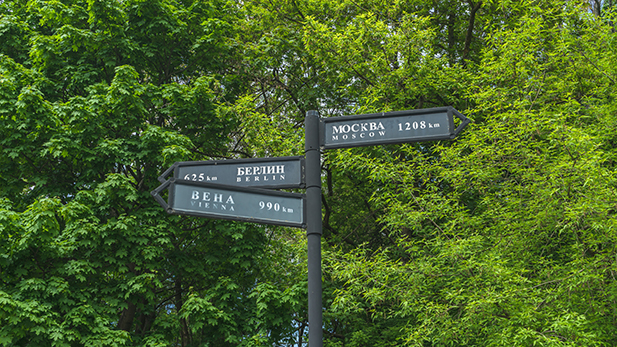The war in Ukraine: Hidden wealth and tax havens

Photo: Shutterstock
Postdoc Rasmus Corlin Christensen from the Department of Organization shares his research-based insights into what the last decade of tax haven leaks reveals about Russian offshore wealth.
Global political leaders have adopted harsh sanctions against Russian individuals, including freezing their assets. Are these sanctions effective?
They are not as effective as political leaders would want them to be. Tax havens are a prominent way to escape sanctions and more broadly hide assets that authorities might want to pursue.
Globally, “offshore” wealth – wealth placed in tax havens, often behind opaque veils of secrecy – is estimated at 10% of global GDP. That is a lot! But the richest Russians store wealth in tax havens at a higher rate than any large Western country (1).
That makes it particularly hard to trace Russian assets and thus impose effective sanctions. If you do not know where the Russian bank deposits or private jets are then you can’t seize them.
How do you know this if the money is all hidden?
More than a decade of research in economics, law and international political economy has exposed the mechanisms that allow individuals to hide wealth in tax havens – including ground-breaking work from CBS researchers (2) (3).
Add to that wave after wave of "tax haven leaks", tropes of documents from whistle-blowers and hacks inside the tax haven world, which have revealed the hitherto unknown scale and features of Russians (and others’) offshore wealth.
These leaks show clearly how high-profile government officials, businessmen and celebrities use secretive corporate structure to avoid scrutiny and regulation, while allowing those same elites to control key firms, money, real estate, yachts and more (4).
What can do we do about this?
The good news is that we are getting better – much better – at shining a light on hidden wealth. In the wake of the global financial crisis of 2007-09, governments around the world have adopted radical new measures of transparency, which make it significantly more difficult to hide wealth in tax havens (5).
Take Switzerland, for instance. For hundreds of years it was the favourite location of rich individuals around the world to stash away money and assets, due to strict banking secrecy. Nowadays, international cooperation on financial transparency means Swiss bank secrecy is radically curtailed. If you set up a bank account in Switzerland – or in many other tax havens around the world – the bank will automatically report that information to your home country tax authorities. That makes it much harder to conceal your wealth.
Whether this crisis offers a springboard for political change remains to be seen but I am very optimistic. Political leaders have already pushed transparency measures to the top of the global political agenda, so hopefully new rules and collaborations materialise in the coming years.
Rasmus Corlin Christensen profile
https://www.cbs.dk/en/research/departments-and-centres/department-of-organization/staff/rccioa
Link 1: http://www.sciencedirect.com/science/article/pii/S0047272718300082
Link 2: https://www.tandfonline.com/doi/full/10.1080/09692290.2016.1268189
Link 3: https://www.hup.harvard.edu/catalog.php?isbn=9780674244771
Link 4: https://www.icij.org/investigations/panama-papers/
Link 5: https://www.tandfonline.com/doi/full/10.1080/09692290.2019.1625802
